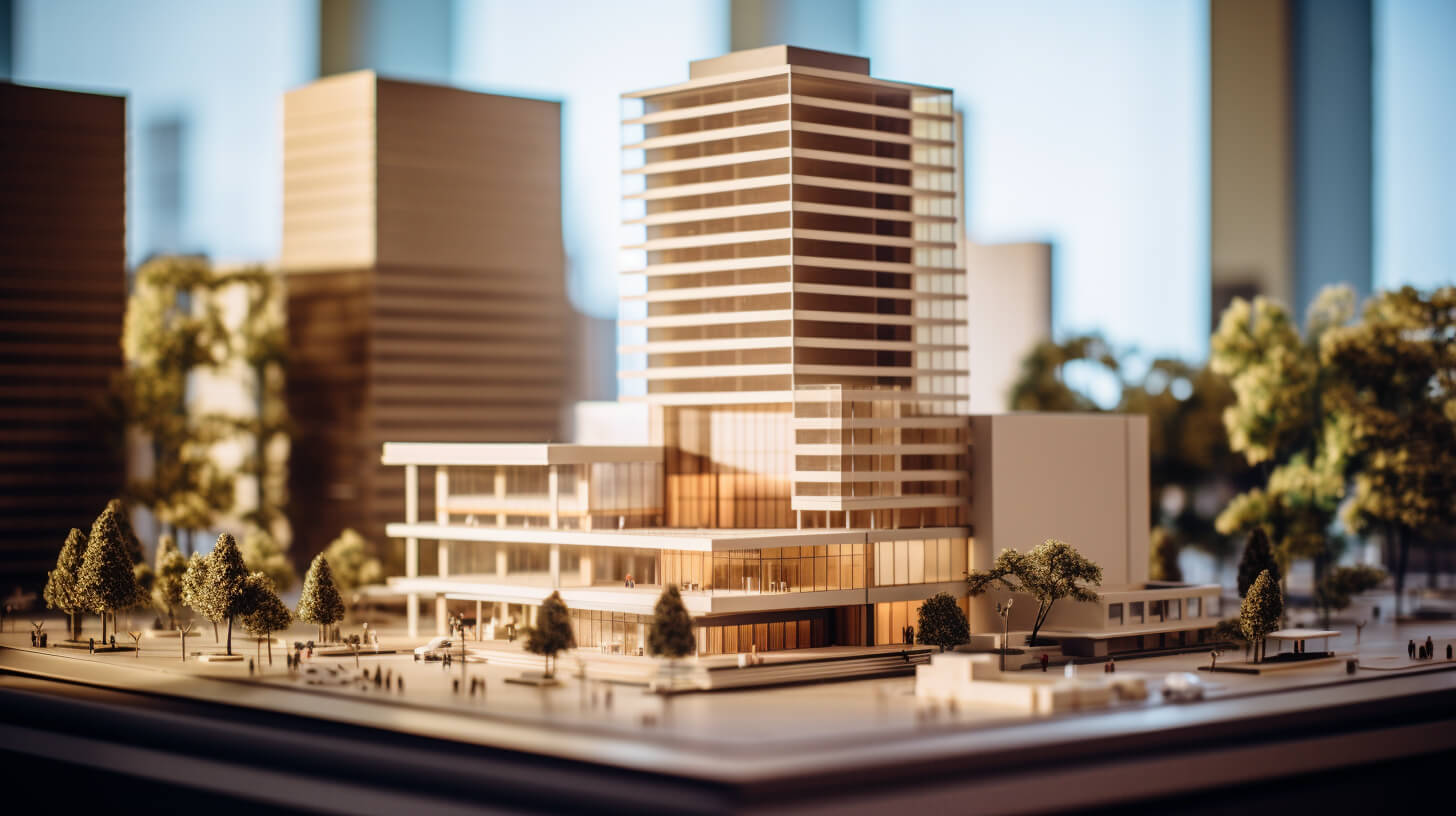Navigating the complex world of zoning laws is a crucial aspect of commercial real estate investment. These laws, which govern how a property can be used, can significantly impact the value and potential of your investment. Understanding them isn’t just about knowing the rules—it’s about unlocking opportunities and mitigating risks.
In this piece, we’re going to unpack the complexities of zoning laws, exploring everything from their fundamental concepts to their far-reaching implications on commercial properties. We’ll also take a closer look at the unique zoning laws in Mississippi and how they shape the local commercial real estate landscape. Regardless of whether you’re an experienced investor or a newcomer to the field, this guide is designed to arm you with the insights you need to confidently steer through zoning laws in your commercial real estate pursuits. Let’s demystify zoning laws together and turn them into your strategic advantage.
What Are Zoning Laws?
Zoning laws, at their core, are the rules that dictate how parcels of land in specific geographic zones can be used. They fulfill a vital role: they designate residential, commercial, industrial, and agricultural zones, ensuring these varied uses don’t clash with each other. This separation not only helps maintain the character and quality of life within communities, but it also helps protect property values.
Zoning categories are diverse. The most common are residential, commercial, industrial, and agricultural, and each category carries a distinct set of regulations and restrictions. For instance, commercial zoning typically covers office buildings, shopping centers, and hotels, while industrial zoning is reserved for manufacturing and other heavy industries.
The concept of zoning isn’t new, but the form of zoning laws we recognize today took shape in the early 1900s. They’ve evolved over time to adapt to changing societal needs and urban development trends.
Understanding zoning laws is crucial in the realm of commercial real estate. These laws can significantly influence the use, value, and potential of a property. For example, a parcel zoned for commercial use typically cannot be used for residential purposes, and vice versa. That’s why it’s crucial for investors and developers to fully grasp zoning laws when they’re weighing up a potential real estate investment or development project. They can significantly impact the feasibility, profitability, and legal compliance of your real estate endeavors.
The Impact of Zoning Laws on Commercial Real Estate
Zoning laws play a pivotal role in shaping the commercial real estate landscape. They directly influence what can be built where, and this, in turn, impacts the value and potential uses of a property. For instance, a plot zoned for commercial use in a bustling city center will likely have a higher value than the same plot zoned for agricultural use due to the potential for higher revenue generation.
Let’s use a couple of examples to demonstrate how zoning laws can affect commercial real estate projects:
- Retail Development. A developer plans to build a shopping center on a plot of land, but the land is currently designated for residential use. The developer must apply for a rezoning to commercial use. If the rezoning request is denied, the potential use—and therefore the value—of the land is significantly diminished for the developer.
- Industrial to Residential Conversion. An old factory building located in an area zoned for industrial use is purchased with the intent to convert it into loft-style apartments. The investor must apply for a variance or rezoning to residential use. If approved, this change can significantly increase the property’s value due to the higher revenue potential of residential units compared to the previous industrial use.
These examples underscore the importance of understanding zoning laws when planning commercial real estate projects. They can either pave the way for successful developments or pose significant hurdles, depending on how well they’re navigated. Therefore, a comprehensive understanding of these laws is a vital tool in the arsenal of every commercial real estate investor or developer.
How to Find Zoning Information
Finding zoning information for a specific property is a crucial step in the due diligence process of any commercial real estate endeavor, and there are a variety of places you can do that.
- Local Government Websites: Many city or county websites have zoning maps and information available online. Look for a section on the website related to planning, zoning, or land use. Resources like ZoningPoint (which we mention again later) can help you simplify your research.
- Local Planning Office: If the information isn’t available online, you can contact your local planning or zoning office. They can provide you with the zoning classification for a specific property and any related regulations.
- Real Estate Agent or Broker: Professionals in the real estate industry often have access to detailed property data, including zoning information. They can be a valuable resource in your search.
Once you’ve found the zoning information, interpreting it is the next step. Zoning codes may initially appear to be a baffling mix of letters and numbers, but they are more intuitive than they seem. Typically, the codes are abbreviations for the zoning classification. ‘R’ usually represents residential, ‘C’ stands for commercial, and ‘I’ signifies industrial. The numbers usually indicate specific regulations within that classification, such as the level of density allowed.
Zoning maps, on the other hand, use colors to represent different zoning classifications across specific geographic areas. By locating your property on the map, you can see its zoning classification and those of the surrounding properties.
If you’re unsure of the details, seek professional advice to confirm that you’re interpreting the codes accurately.
Navigating Zoning Restrictions and Changes
Zoning restrictions can sometimes pose challenges to your commercial real estate plans. However, there are mechanisms in place that can allow for flexibility: variances and rezoning.
A variance is a request to deviate from current zoning requirements. It’s typically granted when the zoning ordinance would cause unnecessary hardship due to the property’s unique characteristics. For example, a variance might allow for a building to exceed height restrictions if it’s necessary to achieve a certain architectural design.
Rezoning, on the other hand, is a change in the zoning classification of a property. This is usually sought when the current zoning doesn’t allow for the intended use of the property. For instance, you might request rezoning from residential to commercial if you plan to build a retail store on a plot currently zoned for residential use.
If you need to apply for a variance or rezoning, here are the general steps you’d follow:
- Pre-Application Meeting: This is usually an informal meeting with the local planning department to discuss your proposal and understand the application process.
- Application Submission: You’ll need to submit a formal application that includes details of your proposal and the reasons for the request. This often includes site plans, architectural drawings, and a statement of justification.
- Public Notification and Hearing: Usually, there is a public hearing where you can present your proposal, and community members have the opportunity to express their support or concerns.
- Decision: The local planning commission or board will make a decision based on the zoning laws, your proposal, and the public input. If approved, the variance or rezoning becomes legally binding.
This process may differ based on local laws and regulations, so it’s beneficial to consult with a local planning official or a real estate professional who is familiar with the area.
An Overview of Mississippi Zoning Laws
Zoning laws in Mississippi, as in other states, are implemented to control land use across the state. However, Mississippi’s zoning laws have unique characteristics.
In Mississippi, each city or county individually formulates zoning laws at the local level, which means the zoning laws in one part of Mississippi may not align with those in another. For example, different cities or counties within Mississippi have comprehensive Zoning Ordinances that provide for the administration, enforcement, and amendment of zoning regulations within their jurisdictions.
The impact of Mississippi’s zoning laws on commercial real estate is significant, and a property’s zoning classification can determine the feasibility of commercial development projects. For example, suppose you have a property that’s currently zoned as residential. If you’re a developer looking to build a commercial project there, you’ll first need to request a rezoning to commercial use.
For a deeper understanding of Mississippi’s zoning laws, engaging with local planning departments or real estate experts well-versed in the state’s regulations can be invaluable. We’ve also provided some beneficial resources below to assist in initiating your research.
- ZoningPoint Search
- Justia – Mississippi Codes
- MSU Center for Government and Community Development
- Jackson, MS Government Documents
The Role of Real Estate Professionals in Navigating Zoning Laws
Zoning laws can be complex to navigate, particularly for those new to the nuances of commercial real estate, but this is where the expertise of real estate professionals becomes invaluable. Their knowledge can be invaluable in understanding and navigating these laws.
- Commercial Real Estate Brokers: These professionals have a deep understanding of the local real estate market, including zoning regulations. They can provide guidance on how zoning laws might impact the value and potential uses of a property. They can also assist in finding properties that meet your specific zoning requirements.
- Real Estate Lawyers: Lawyers specializing in real estate can provide legal advice on zoning laws and their implications. They can help interpret complex zoning ordinances, represent you in zoning disputes, or assist in applying for variances or rezoning.
- Urban Planners: These professionals have a comprehensive understanding of land use policies, including zoning laws. They can provide insights into how zoning changes might affect a property and can help in planning development projects that comply with zoning regulations.
- Architects and Engineers: When planning a development project, these professionals can design structures that comply with zoning laws. They can also help identify potential zoning issues that might affect a project.
In conclusion, while zoning laws can be complex, you don’t have to navigate them alone. By leveraging the expertise of real estate professionals, you can make informed decisions and ensure your commercial real estate endeavors comply with all relevant zoning regulations.
Conclusion
Understanding zoning laws is a fundamental aspect of investing in and developing commercial real estate. These laws, which dictate how a property can be used, can significantly influence the value, potential, and feasibility of your real estate projects. From the basic principles of zoning to the unique aspects of Mississippi’s zoning laws, we’ve explored how these regulations shape the commercial real estate landscape.
Navigating zoning laws can be complex, but remember, you’re not alone in this journey. Seeking professional advice can make the process much smoother and help you avoid potential pitfalls. Real estate brokers, lawyers, urban planners, and architects all play crucial roles in helping investors and developers understand and navigate these laws.
At Speed Commercial Real Estate, we’re here to assist you with all your commercial real estate needs. Our team of experienced professionals can provide guidance on zoning laws and other critical aspects of commercial real estate. Whether you’re planning a development project or hunting for the ideal investment property, we stand ready to assist you in making knowledgeable decisions that align with your goals.
In the world of commercial real estate, knowledge is power – and understanding zoning laws can give you the strategic advantage you need to succeed. So, don’t hesitate to reach out to us at Speed Commercial Real Estate for assistance. Let’s turn zoning laws from a challenge into an opportunity together.

